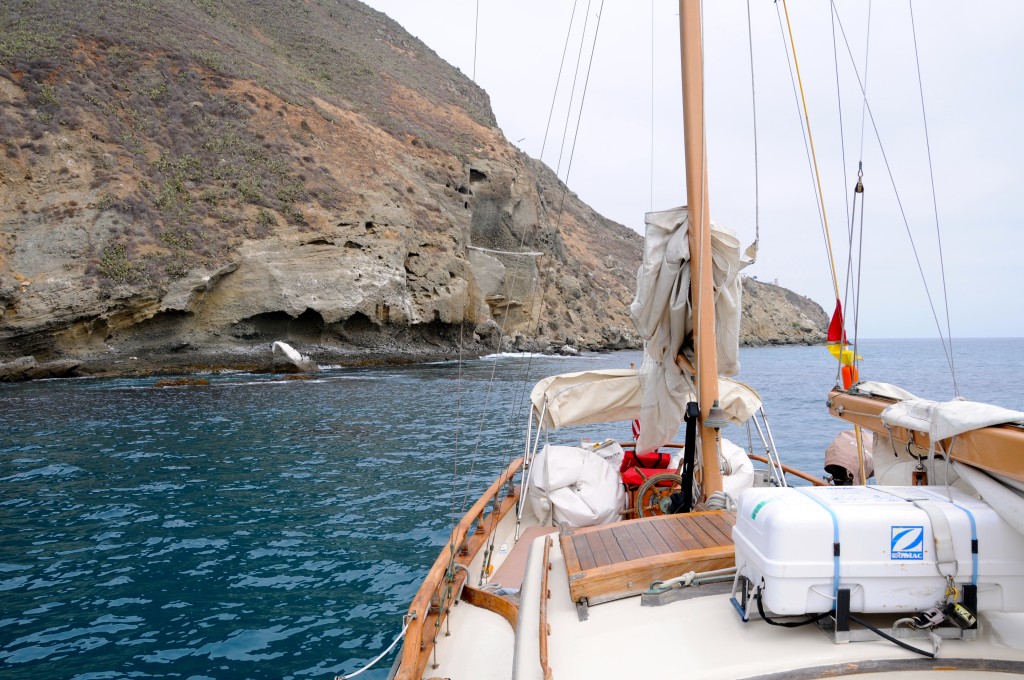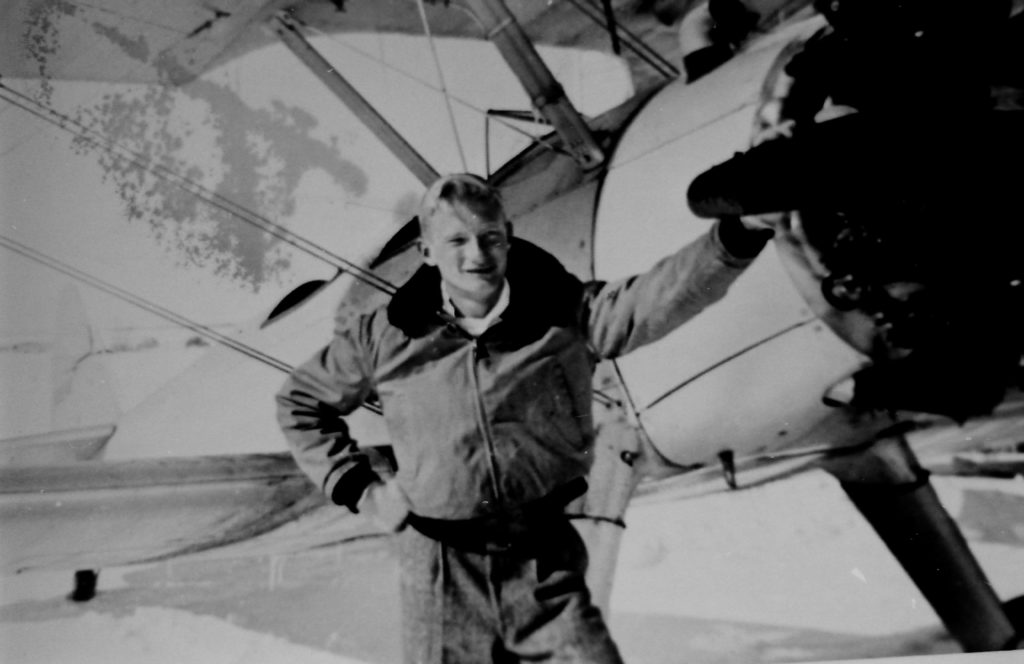
Scientists who measure such things say the pain of childbirth and the pain of passing a kidney stone are equivalent. (What kind of a person measures such things?) So what is the difference? Give birth and people celebrate. They throw parties and give presents, but pass a kidney stone and all you get is relief.
Some pain is debilitating. Who can enjoy life with a toothache or a migraine? But other pain simply confirms you are alive. Think about the pain you feel after dragging yourself up on the beach after a long swim—a couple of deep breaths, and you towel your hair as you stretch. There is pain, but it’s a good pain.
One night, after evening church services, Jan came running into the auditorium, shouting, “John! Santa Teresa has broken free from her mooring and is headed for the rocks!” There was a terrible storm in San Diego that night. The winds and the waves were so bad that the harbor police recalled all of their boats. If you were in trouble, you were on your own.
I didn’t bother changing clothes. Jan and I jumped into our car and raced to the beach. Even with the wipers going full speed, it was hard to see. The wind buffeted us as we crossed the Coronado Bridge, but we could see Santa Teresa just off the beach, heeled over on her side, with the surf pounding her! Jan called one of our neighbors. Stewart and I pushed our dinghy into the waves, and I rowed with all of my strength. It was a miracle that I could get aboard her at that crazy angle, with the foam crashing over the decks.
The first task was to get an anchor over the stern to keep her from being pushed any farther onto the beach or into the rocks. I heard a shout and there was Stewart in his dinghy. I lowered the big bow anchor into his boat and he rowed as far as he could into the bay before dropping it over the side. A coast guard fast boat arrived, but they only rescue drowning people—they don’t rescue boats. They waited in the distance, but gave the harbor police (who showed up in a patrol car) a blow-by-blow description of what we were doing. Jan was in a harbor police patrol car, praying, and she heard them say, “We’ve never seen such seamanship!” Stewart was battling the waves in his tiny boat and I was cranking in the anchor line in, inch by painful inch. I was certain that the line would snap under the strain, but it didn’t. Slowly, and almost imperceivable, Santa Teresa began to move backward through the mud, sand, and rocks. I prayed that the hull was whole.
Stewart climbed back on board and, together, exhausted, we continued to crank. Now we could feel it. She was fighting to get free of the death grip. We were moving! Proudly she righted herself, and I fired up the engine. We couldn’t raise the anchors, so I tied floats on them and cut them free. We were moving! We were sailing! We headed back to the mooring ball, but how could we catch it in these waves, and with this wind? Stewart made a lasso out of what was left of an anchor line and hung over the side. Santa Teresa was bucking like a wild animal as we approached. Twice we missed and three times I had to come around again. On the third try, Stewart looped the big, white ball and snubbed us to a stop.
We were a mess, exhausted, soaked, and cold. Below, the cabin was a mess. There was an anchor from a boat Santa Teresa hit when she broke free. It was sitting on a bookshelf under a hole in the deck above. Who knew what other surprises were waiting? Was there a hole in the hull? Had the keel been cracked? The answers would have to wait until morning. I passed out towels and dry clothes, the teakettle whistled, as Stewart and I took stock. We were in pain, but it was a good pain. The kind of pain that tells you that you’re alive.
So how can a Good God allow so much pain in his world? It seems the height of hubris for me to even try to answer that question, but I can make three observations. First, the same sensors that register pain can also register pleasure. The same nerves that shout, “The stove is hot!” also say, “Phoebe’s fur is soft.” Pain and pleasure are part of the same continuum. Second, pain becomes acceptable when it has meaning. The pain of childbirth is bearable because it has meaning. We tolerate the dentist’s drill because it will cure our toothache. I can accept the pain in my muscles because I know I’m getting stronger. Finally, pain can represent value. A painting is valued by how much someone is willing to sacrifice to obtain it. Stewart’s friendship is precious, because he was willing to endure so much pain and hardship just to help me.
A final observation: God is not sadistic. He does not stand apart from our pain, but endures it with us. God is not unmoved by our grief and suffering. Do you remember the scripture that simply says, “Jesus wept”? (John 11:35) How much more does Jesus prove his love for us than by his willingness to die for us? Be a Blessing!

from my book, Changing Tacks: Lessons from an Old Wooden Boat






